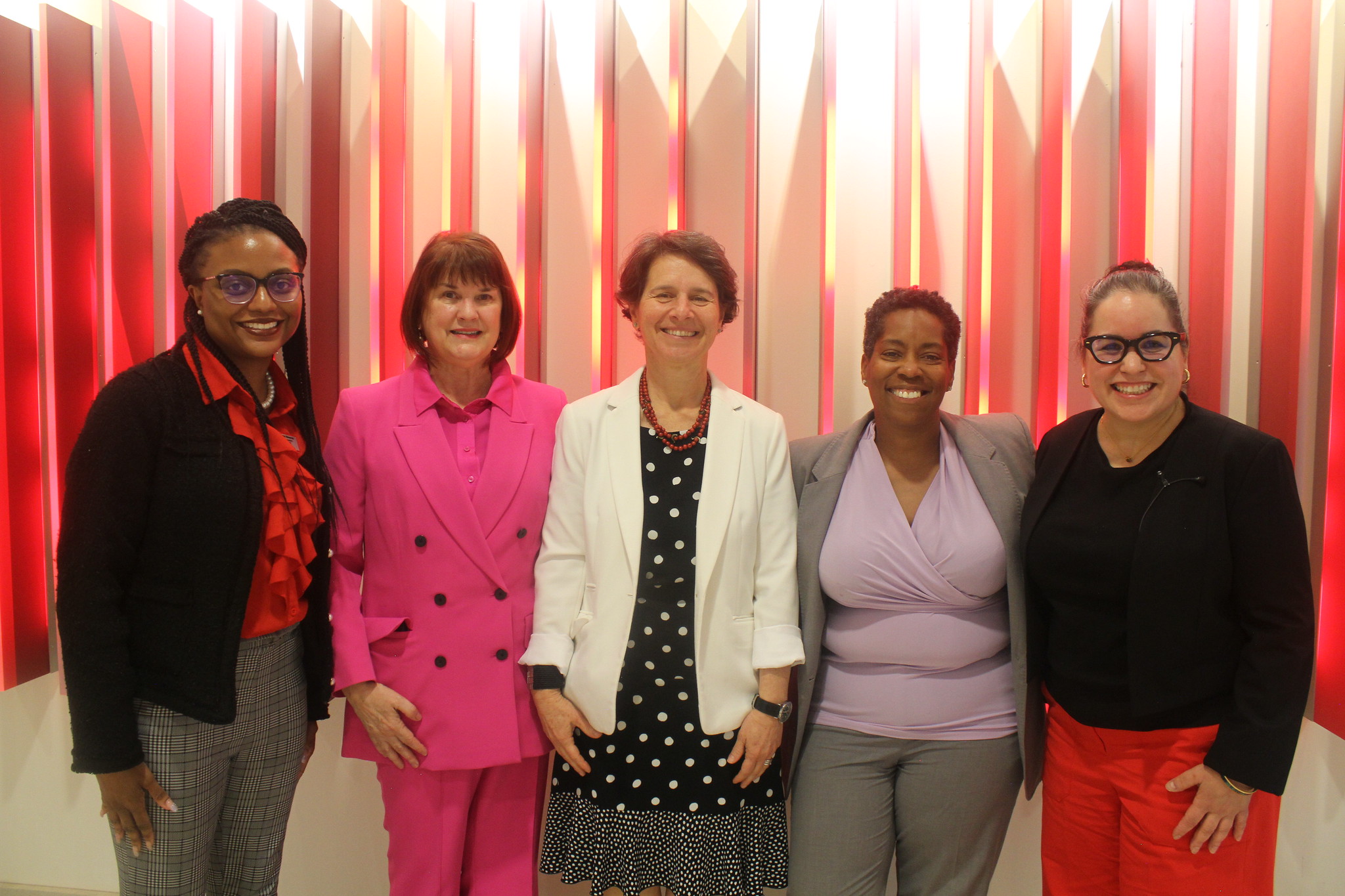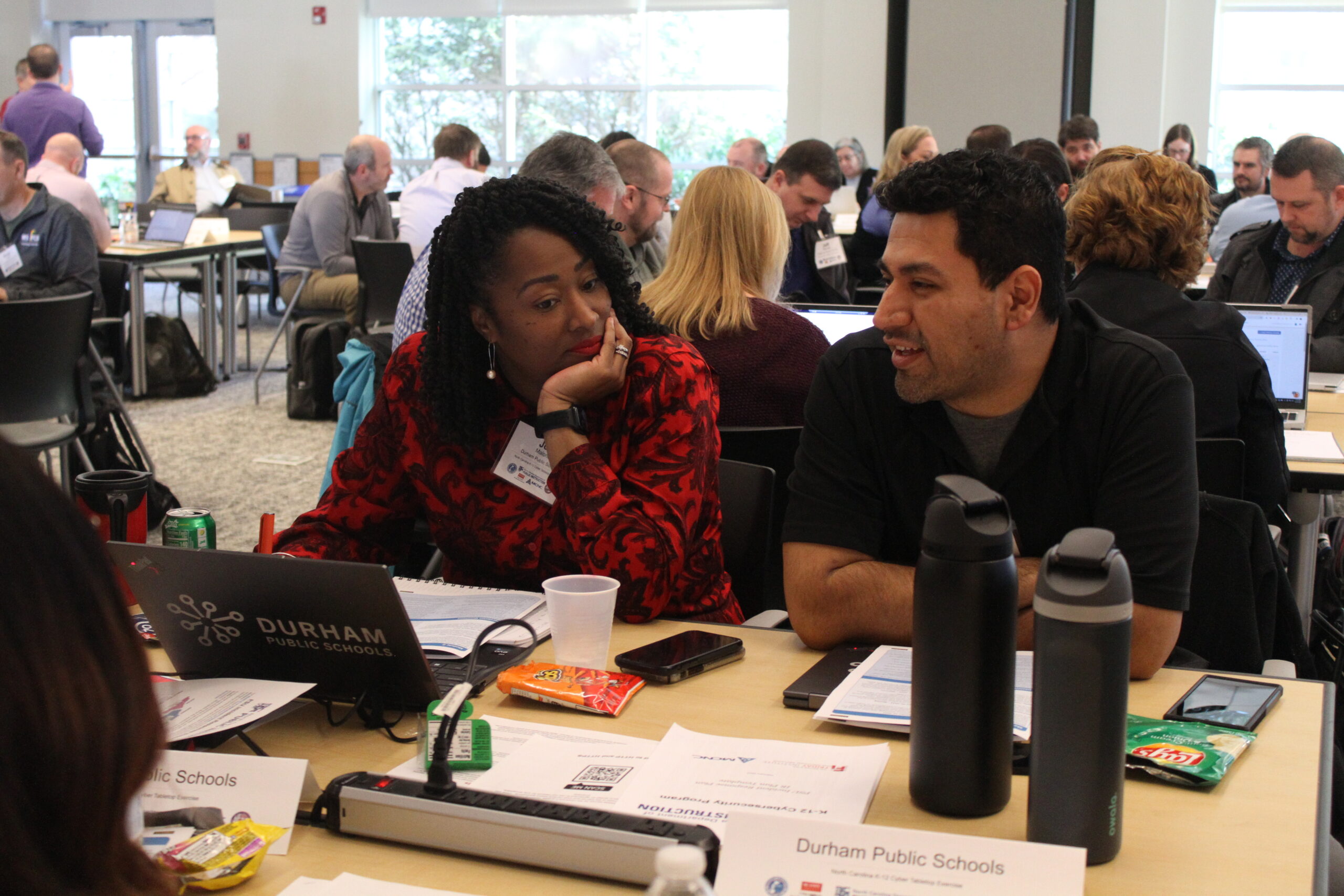Thinking Locally, Reaching Globally with the New Literacies Teacher Leader Institute
August 4, 2011—Teachers from North Carolina and China attended a collaborative institute that encouraged them to Inquire, Collaborate and Create with innovative inquiry projects that have global significance. The Friday Institute for Educational Innovation hosted the teachers in a week-long experience that helped them understand the affordances of new technologies for learning. Through this project-based inquiry approach, NC State University researchers demonstrated new approaches for student engagement and achievement.
“Our goal is for teachers to acquire an innovative disposition toward teaching and learning as well as membership in a forward-thinking online community of practice,” said Dr. Hiller Spires, professor and senior research fellow at the Friday Institute. “We know that technology is constantly changing, so it’s important for the teachers not to look to technology tools as an answer. Rather we encourage them to develop adaptive expertise that will allow them to be innovative within their disciplinary content areas in order to meet the academic needs of all learners,” said Spires.
The New Literacies Institute (NLI), in its fourth year, featured a new dimension by putting North Carolina teachers in the same room with teachers from China to learn and also explore educational collaborations.
“It is important for us to create partnerships that are sustainable so that we can learn from each other over time,” said Dr. John Lee, NC State associate professor of social studies and middle grades education and research fellow at the Friday Institute.
One such collaboration involved Justin Richards, who teaches 11th grade English at Wake Forest Rolesville High School, and Calvin Yang, who teaches English in grades 7-12 at Beijing Royal School. They collaborated on an inquiry project during the Institute, by posing the question: “How does cultural context change the way we interpret poetry?” The two teachers will continue their partnership by having their classes work collaboratively on a Chinese poetry project.
“Justin and Calvin will have their students analyze poems from two different cultural points of view and see how the interpretations are similar and different,” added Dr. Carl Young, associate professor of English, language arts and middle grades education. “This is a great way to study language and culture,” said Young.
Richards and Yang will use a blog to promote their online collaboration since the 12- hour difference between Raleigh and Beijing makes it difficult to videoconference in real time.
“The first poem we will analyze is the famous Chinese poem “Wang Yue,” by Du Pu from the Tang Dynasty. Translated the title of the poem means ‘looking up at the moon,’ ” said Yang. In addition to analyzing poetry, the students will collaborate on writing poems together.
“We plan to use some of the new tools, like Prezi, Voki, and Wordle, to make presentations of the new poems and ideas more engaging. “These are new tools for our partners in China and they are embracing them with enthusiasm,” said Young.
“This partnership with Chinese teachers provides opportunities to share educational best practices and learn from one another as both countries strive to provide students with the necessary knowledge, skills, and dispositions for success in a rapidly changing world,” said Lee.
“Despite cultural differences between China and the US, the two countries share common goals, most notably in the area of education. These goals include preparing students for 21st century life and work, accelerating second language learning (Chinese and English) and providing continuous education for teachers,” said Spires.
Sponsors for the Institute included BB & T, Dell, NCBCE and Womble Carlyle Sandridge Rice. The first New Literacies Teacher Leader Institute was held at the Friday Institute with 50 teachers in 2009. Two Institutes have been held in Cambridge, MA with over 200 teachers and supported by the MA Department of Education. The third Institute was held at Beijing Royal School with 65 teachers. Each time the Institute is offered, a group NLI Lead Teachers are identified and serve the role of ongoing facilitators and coaches of the new literacies content and process with teachers.
Forty teachers (from North Carolina and China) participated in the NLI in July 2011.
Click here for more information on the New Literacies Collaborative.
Click here for a video of the Institute.
Click here for the content of the Institute.
Click here for photos from the Institute.



